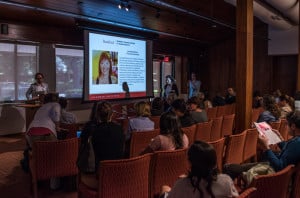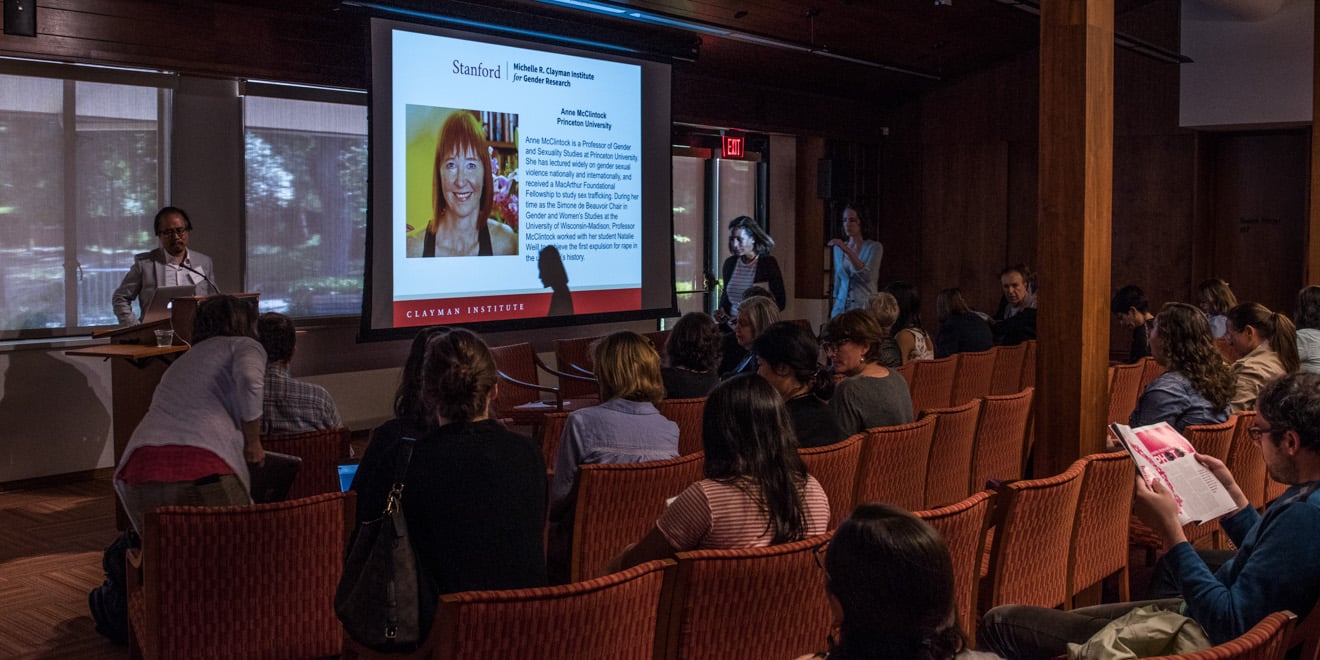The Clayman Institute for Gender Research hosted the inaugural event for its 18-month series “Breaking the Culture of Sexual Assault” on Monday evening. According to 2015-16 Clayman Faculty Research Fellow, David Palumbo-Liu, the series will feature quarterly topics such as “Masculinity and Men,” “Intersecting Identities” and “Global Perspectives.” The initiative will culminate in a campus-wide discussion to attempt to “break” the culture of sexual assault.
“The series will engage and educate all members of our community student, staff and faculty in finding solutions,” Palumbo-Liu said. “By rotating our thematic focus each quarter we’ll investigate a different aspect of the culture of sexual assault leading to a campus-wide discussion of solutions and best practices.”

The inaugural event, “Preventing Sexual Assault on Campus: A Faculty Perspective,” featured a faculty panel consisting of both Stanford and non-Stanford staff with past involvement in sexual assault prevention.
Jennifer Freyd Ph.D. ’83, who currently teaches at the University of Oregon, has a strong connection to Stanford.
“I’ve bonded with this place and it’s really exciting to come back and maybe be able to give something back to this institution,” Freyd said. “I think Stanford has great potential to do some good here.”
In her presentation, Freyd focused on concepts she has been researching on – institutional betrayal and institutional courage. Institutional betrayal “includes failing to protect … a failure to do what people expect and have a right to expect,” Freyd said.
The concept of institutional betrayal remained relevant throughout the other faculty’s presentations. According to Freyd’s findings, there is a prevalence of institutional betrayal in instances of sexual assault.
“To my shock, 40 percent who indicated [experiencing] sexual assault also indicated [experiencing] institutional betrayal,” Freyd said.
Anne McClintock, a professor at Princeton, and her former student Natalie Weill contributed to the discussion. When McClintock taught at the University of Wisconsin-Madison, she and Weill successfully fought for the first expulsion of a sexual assault perpetrator in the university’s history.
“Institutional betrayal hurts, but when you have a teammate – a faculty member – by your side it’s more like receiving justice together,” Weill said. “It’s not this isolating experience when you have these faculty who are trained in sensitivity and counseling.”
The role of the faculty in how to face campus sexual assault and help students touched on all the faculty presenters. Estelle Freedman, the founder of Stanford’s Feminist, Gender and Sexuality Studies program, emphasized the importance of faculty networks and relevant coursework in creating a change of campus cultures across the country.
Freedman explained how faculty isolated within their own campuses and from other campuses often feel “pretty clueless about laws and procedures and what’s expected of us.” Freedman believed that was partly due to “a huge amount of misinformation.”
Stanford law professor Michele Dauber discussed information and data when it comes to combatting sexual assault on campuses.
“What we really suffer from is from a lack of information about the processes themselves, and how they work, and whether they are effective,” Dauber said
Freyed expressed concern over what she believed to be inadequate information on the issue.
“Much of the institutional betrayal that is problematic is about hiding information,” Freyd said. “Be transparent in everything because sexual violence thrives in secrecy.”
For Dauber, a lack of transparency on the Stanford Campus revolves around the results of the campus climate survey that were released last fall.
“Right now Stanford is in the midst of a crisis … about its climate survey,” Dauber said. “There was a very low transparency of the results themselves – there were very few tables comparable to other surveys that were released.”
Besides her criticism of the survey itself, she also brought up the recent success of a ballot measure asking the University to administer a different campus climate survey. Dauber commented on the fact that despite passing with a 90.6-percent majority, the University singled her out and the students in her class as the sole group dissatisfied in a Huffington Post article.
“I admit it was not a good experience for me,” Dauber said. “On the other hand, I think if we think of this as an organizational behavior problem what we can see is that this is the way organizations deal with challenges.”
Despite negative experiences, the faculty in the room said that student safety was their priority.
“When a student presents themselves in your office and says ‘I was assaulted, and I need help, and I’m going through this terrible thing,’” Dauber said. “Even if you know that it’s going to make your organization upset with you… to me this is really simple, we owe our loyalty to our students.”
“I know colleges are places filled with staff and faculty who are there … because actually they love students, they love education,” Freyd said.
Contact Andrea Villa at acvilla ‘at’ stanford.edu.
Editor’s note: This article has been updated to edit a garbled quote.
